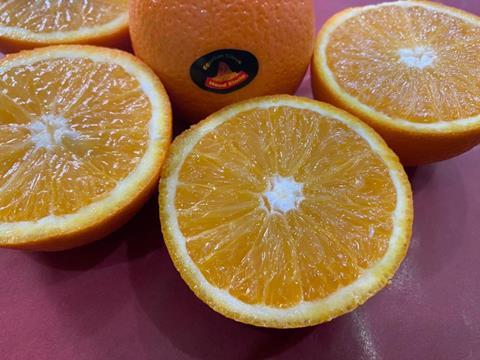As Egypt’s export season reaches its close, high prices are encouraging many citrus suppliers to sell to domestic juicing factories instead of exporting, as the challenges mount

Egypt’s rise to dominance in the citrus category has seemed inexorable, but it has not been without its challenges. Houthi attacks on commercial vessels in the Red Sea have impacted export activity and continue to do so, according to Osama Saleh, commercial manager of producer-exporter Houd El Nile, with expectations of a 15 per cent decline in orange exports during the current season.
There is also the impact of the climate. “Prolonged periods of high temperatures, higher than those experienced in previous years, have negatively impacted orange production, leading to expectations of a 12 per cent decline in production, reaching 4.07mn tonnes in the 2024/25 season.
Egyptian citrus faces competition from countries including Iran and Spain, but varying harvests and export seasons have helped Egyptian products excel, says Saleh. However, rising prices are a concern.
“Orange prices have seen a significant increase in recent days, approaching EGP25 per kilogram, which is approximately US$490 per tonne, without any processing or packaging,” he says. “Therefore, many farmers are now preferring to sell directly to juice factories on the local market. Overseas markets must accept the current price increase due to rising costs. Indeed, many foreign customers have begun to accept the situation and anticipate what lies ahead.”
With little time left on the current export season, traders are trying to anticipate how this year’s Egyptian citrus campaign will end. Eyes are also on the rise of Egypt’s juicing industry.
“At Houd El Nile, we possess the crops and sufficient quantities to cover our packhouses,” says Saleh. “But it appears that the crisis will affect some exporters that do not have their own crops and their own farms. There are many factories on the way in Egypt that will consume big volumes of fresh oranges and other citrus in the coming seasons for juicing and drying.”



